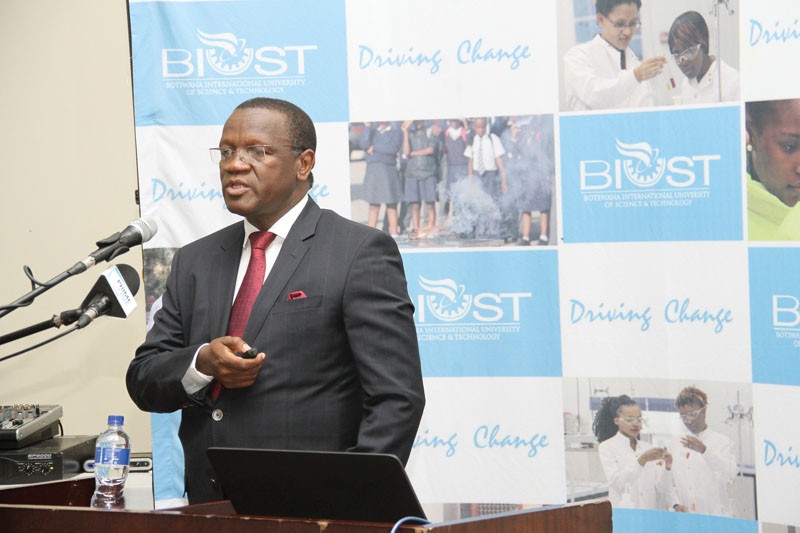BIUST decries �wasteful� research efforts
Baboki Kayawe | Thursday October 13, 2016 16:34


Totolo made the concession in response to a question yesterday, during the launch of the BIUST strategy. An industry player questioned the rationale behind having many institutions with related mandates in a population of just over two million.
Totolo said prior to the opening of the Palapye-based university, related institutions such as the University of Botswana (UB)’s Faculty of Engineering and Technology (FET), Botswana University of Agriculture and Natural Resources, Botswana Institute for Technology Research and Innovation and Botswana Innovation Hub, among others, were due to rationalise.
However, plans changed at the 11th hour, further stretching the fragmentation and duplication of mandates. “Instead of thinking about the nation, we think of building an empire and that is wrong. If we are divided into small entities, the intended impact won’t be realised,” Totolo said.
He added that such thinking would not build “robust institutions”.
The danger of lacking of institutional alignment, he said, is the fact that all these institutions need highly specialised equipment, which could be easily shared when proper planning and structuring are in place. The status quo however, requires individual procurement of equipment, which he termed “wasteful”.
“Isn’t this wasteful? This is a legitimate concern,” Totolo said.
With all the innovation and research institutions now under the umbrella of the Ministry of Tertiary Education, Research, Science and Technology, the vice chancellor said he hoped a consensus would be reached on how to curb the prevailing duplication of efforts and resources. Former Botswana Institute for Development Policy Analysis economist, Roman Grynberg was among the leading critics of the proliferation of institutions performing duplicate functions.
Grynberg previously told a forum that BIUST should not have been set up, as its functions were a clear duplication of what FET at the UB was doing. Grynberg argued that it was unnecessary for BIUST to have been established as it offers the same courses as UB and FET.
“There is no eye to detail. All these institutions with duplicated functions end up fighting for the same turf and resources. Why should government overly burden itself?” Grynberg asked.
The crux of BIUST’s new strategy is to improve performance, competitiveness through research, tighten linkages with the industry and ultimately improve the economy through innovation and research.
The institution, whose internship duration is six months, is currently considering the German model whereby engineering students spend two years in class and another in the workplace only to return for a year of study before graduation, explained Totolo.
